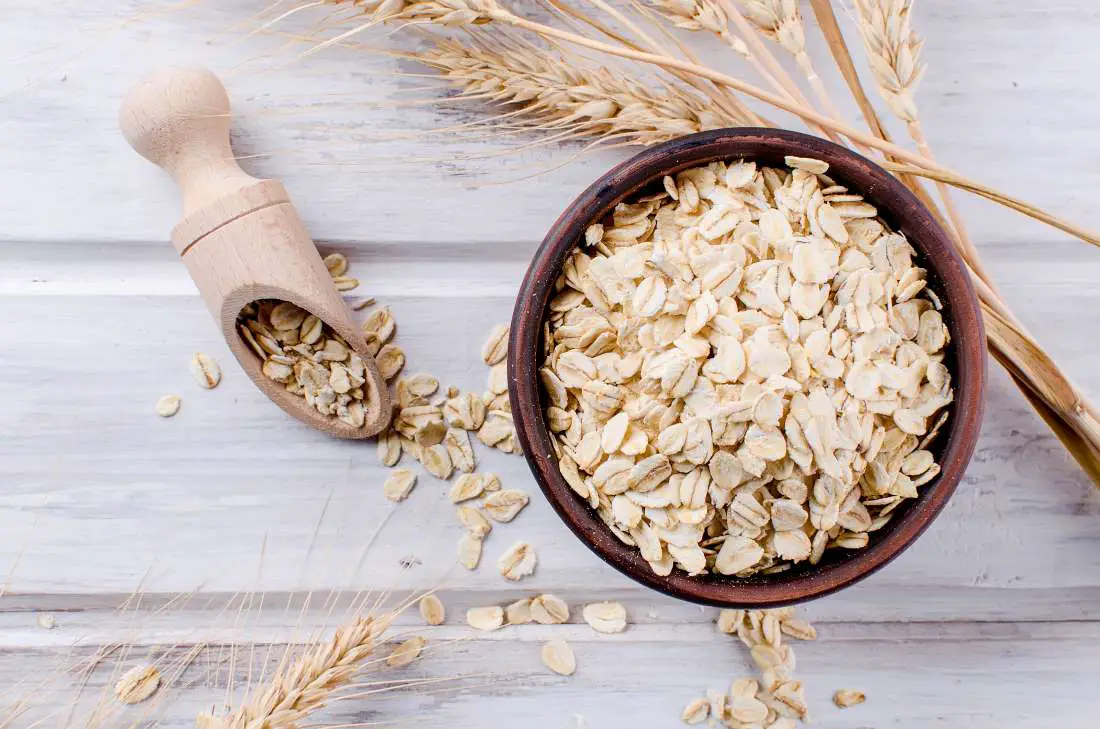Is oatmeal low histamine? It’s a question you should answer before helping yourself to your next bowl of oatmeal. What you eat matters if you have histamine intolerance.
When you have histamine intolerance or histamine sensitivity, the histamine content of your diet matters, and before eating a bowl of oatmeal, you have to know whether doing so will aggravate histamine intolerance symptoms. There are several ways this could happen.
- Oatmeal could contain histamines or other biogenic amines.
- Oatmeal could act as a histamine liberator.
Histamine liberators trigger your mast cells to produce histamine, thereby increasing your body’s histamine burden. If you don’t have enough diamine oxidase (DAO) to break down that extra histamine, you could develop histamine sensitivity symptoms.
Unpackaged Oatmeal Is Low in Histamine
If you enjoy a piping hot bowl of oatmeal in the morning, there’s good news. Oatmeal is low histamine and not known to contain high levels of other biogenic amines either. It’s also not known to be a histamine liberator.
Caveat: Having treated patients with histamine intolerance, most people do not have problems when they consume less processed forms of oatmeal, like rolled oats or steel-cut oats. However, a small number say they experience problems like itching and headaches when they eat quick-cooking oats in little packages from the grocery store.
Packaged Oatmeal May Contain Additives That Trigger Histamine Intolerance Symptoms
Why do a small minority of people have issues when they eat a low-histamine food like oatmeal? Although oatmeal itself isn’t inherently high in histamine, another ingredient in packaged quick oats can cause issues for some people.
Packaged quick oats are higher in sugar, but they may also contain additives or preservatives that could aggravate histamine intolerance symptoms. You may tolerate unprocessed oats, like steel-cut or rolled oats, but not packaged quick oats.
For example, some flavored instant oatmeal packets contain spices like cinnamon that some people are sensitive to. Cinnamon contains benzoates.
One study of 29 people found that sodium benzoate boosted histamine release from the mucosal lining of the stomach. (3) Cinnamon is a spice to avoid if you have histamine intolerance. So, don’t sprinkle cinnamon on your oatmeal either!

Is Oatmeal a Healthy Choice if You Have Histamine Intolerance?
When you choose a food, it’s best to look at the food’s entire nutritional profile, not just its histamine content. You wouldn’t want to eat a low-histamine food low in nutrients that negatively affects your metabolic health.
Too often, this happens. Sometimes we ignore the whole picture and only pay attention to a single component of a food, such as histamine or gluten. For example, people with gluten sensitivity munch on gluten-free packaged foods that aren’t healthy.
For most people, oats are a nourishing food. According to some nutritionists, oatmeal is one of the most nutritious foods you can eat since it contains a variety of vitamins, minerals, and antioxidants. It’s also an excellent source of fiber.
But there are many types of oatmeal, from rolled oats and steel-cut oats to instant oatmeal in little packages, often with sugar and other flavorings. Your body digests and processes these forms of oats differently, meaning one type can cause a greater rise in blood sugar than another.
Like other whole grains, oatmeal belongs to the category of whole grains and shares many of their features. Whole grains are high in fiber and antioxidants, and that’s also true of oatmeal. (8)
Although oatmeal is rich in carbohydrates, with around 27 grams of carbs in a half-cup, your body absorbs the carbohydrates in steel-cut oats and rolled oats slowly, so they don’t elicit a strong rise in blood sugar, likely due to the fiber content of oatmeal.(1)
Some Oatmeal is More Processed Than Another
In terms of the blood sugar response you get when you eat a bowl of oatmeal, steel-cut oats are your best bet. Being the least processed, they cause the least rise in blood glucose. Quick-cooking or instant oats, especially those with added sugar, cause the biggest spike in blood sugar.
In between are rolled oats or old-fashioned oats. They cause only a modest rise in blood glucose, but more than steel-cut oats. Research shows the degree of processing of oats affects the blood glucose rise you get when you eat them. (7) Steel-cut oats undergo minimal processing.
Cooking for a short time doesn’t affect the blood glucose response to rolled oats. The study also found that substituting 25% of the oatmeal with raisins didn’t affect the blood glucose response either. (2) This is important if you have type 2 diabetes, as well as histamine intolerance.

Anti-Inflammatory Effects of Oatmeal
Along with keeping the histamine content of your diet low, eating an anti-inflammatory diet may benefit histamine intolerance. Oatmeal is helpful on this front.
Studies show oats contain avenanthramides, phenolic compounds with anti-inflammatory and antioxidant activity. (8) Some nutritionists refer to it as a superfood due to its high nutrient density and anti-inflammatory benefits.
Oats are quite filling because they contain around 5.5 grams of protein per half cup and are a high-fiber food. They’re also a good source of iron, potassium, and calcium. (9) So, you’re treating your body to nutrients when you have a morning cup of oatmeal.
If You Have Histamine Intolerance and Gluten Sensitivity
Avoid oats if you have gluten sensitivity since oats may be contaminated with gluten because they may be processed in a facility that processes other grains that contain gluten.
The exception would be if you knew for sure that the oats you’ll be eating were processed in a gluten-free facility. Plus, many foods and even medications contain “hidden” sources of gluten.
Some experts believe celiac disease that doesn’t respond to a gluten-free diet may be histamine intolerance in some cases, and there’s evidence to suggest that.
A study found that 30% of people with celiac disease continue to have symptoms despite adopting a gluten-free diet. (4) Experts believe that these non-responders may have another issue, like histamine intolerance, that makes them unresponsive to a gluten-free diet.
Can You Eat Oatmeal on a Low-Histamine Diet?
Oatmeal, for most people, is a safe food for a low-histamine diet, but stick with less processed oats like steel-cut oats or old-fashioned rolled oats. Packaged quick oats are not only harder on your blood sugar, but they may contain spices or other additives that could trigger histamine intolerance symptoms.
If you eat oatmeal, introduce it into your diet and monitor your symptoms by keeping a food journal. Even if unprocessed oats aren’t known to be high in histamine or other biogenic amines, you may be intolerant to some other component in oatmeal.
For example, some people react to a protein in oats called avenin and experience symptoms of an allergic reaction. So, it is possible to be allergic to oats too. (6) If that’s the case, it will activate your immune system and lead to histamine release.
Although oatmeal can be tasty and nutritious, it’s not for everyone. But if you consume less processed steel-cut oats or old-fashioned oats rather than the packaged stuff, it’s unlikely it will worsen your histamine intolerance symptoms.
Do you add a milk alternative to your oatmeal, like almond milk? Find out whether almond milk is low histamine.
What is your experience with eating oatmeal as part of a low-histamine diet? Share your thoughts below. ???? Also, if you enjoy blueberries on your oatmeal, find out whether blueberries are low histamine and whether eggs can be part of a low-histamine diet.
Key Takeaways:
- Unprocessed oats are low in histamine and safe for most people on a low-histamine diet.
- Avoid packaged oatmeal packets. They may contain additives and spices that trigger histamine intolerance symptoms.
- The least processed oats, like steel-cut oats, are the healthiest, as they have less impact on your blood sugar.
- Oats also have anti-inflammatory compounds that may be beneficial for histamine intolerance.
References:
- “Oatmeal, plain, from fast food nutrition facts and analysis..” https://www.nutritionvalue.org/Oatmeal%2C_plain%2C_from_fast_food_56202900_nutritional_value.html.
- Rasmussen O, Winther E, Hermansen K. Postprandial glucose and insulin responses to rolled oats ingested raw, cooked or as a mixture with raisins in normal subjects and type 2 diabetic patients. Diabet Med. 1989 May-Jun;6(4):337-41. doi: 10.1111/j.1464-5491.1989.tb01176.x. PMID: 2524340.
- “Benzoic acid adverse reaction (Concept Id: C0569805).” https://www.ncbi.nlm.nih.gov/medgen/653600.
- Schnedl WJ, Mangge H, Schenk M, Enko D. Non-responsive celiac disease may coincide with additional food intolerance/malabsorption, including histamine intolerance. Med Hypotheses. 2021 Jan;146:110404. doi: 10.1016/j.mehy.2020.110404. Epub 2020 Nov 21. PMID: 33268003.
- Wieser H, Segura V, Ruiz-Carnicer Á, Sousa C, Comino I. Food Safety and Cross-Contamination of Gluten-Free Products: A Narrative Review. Nutrients. 2021 Jun 29;13(7):2244. doi: 10.3390/nu13072244. PMID: 34210037; PMCID: PMC8308338.
- J Investig Allergol Clin Immunol 2020; Vol. 30(3): 199-201 doi: 10.18176/jiaci.0477.
- Wolever TMS, Johnson J, Jenkins AL, Campbell JC, Ezatagha A, Chu Y. Impact of oat processing on glycaemic and insulinaemic responses in healthy humans: a randomised clinical trial. Br J Nutr. 2019 Jun;121(11):1264-1270. doi: 10.1017/S0007114519000370. Epub 2019 May 9. PMID: 31068229. https://pubmed.ncbi.nlm.nih.gov/31068229/
- Sur R, Nigam A, Grote D, Liebel F, Southall MD. Avenanthramides, polyphenols from oats, exhibit anti-inflammatory and anti-itch activity. Arch Dermatol Res. 2008 Nov;300(10):569-74. doi: 10.1007/s00403-008-0858-x. Epub 2008 May 7. PMID: 18461339.
- “Oats, raw nutrition facts and analysis..” https://www.nutritionvalue.org/Oats%2C_raw_57602100_nutritional_value.html.

